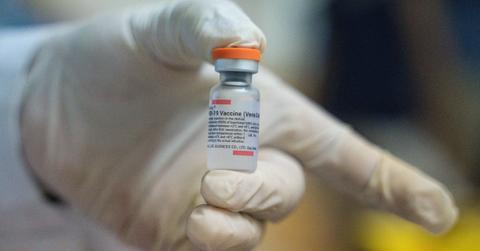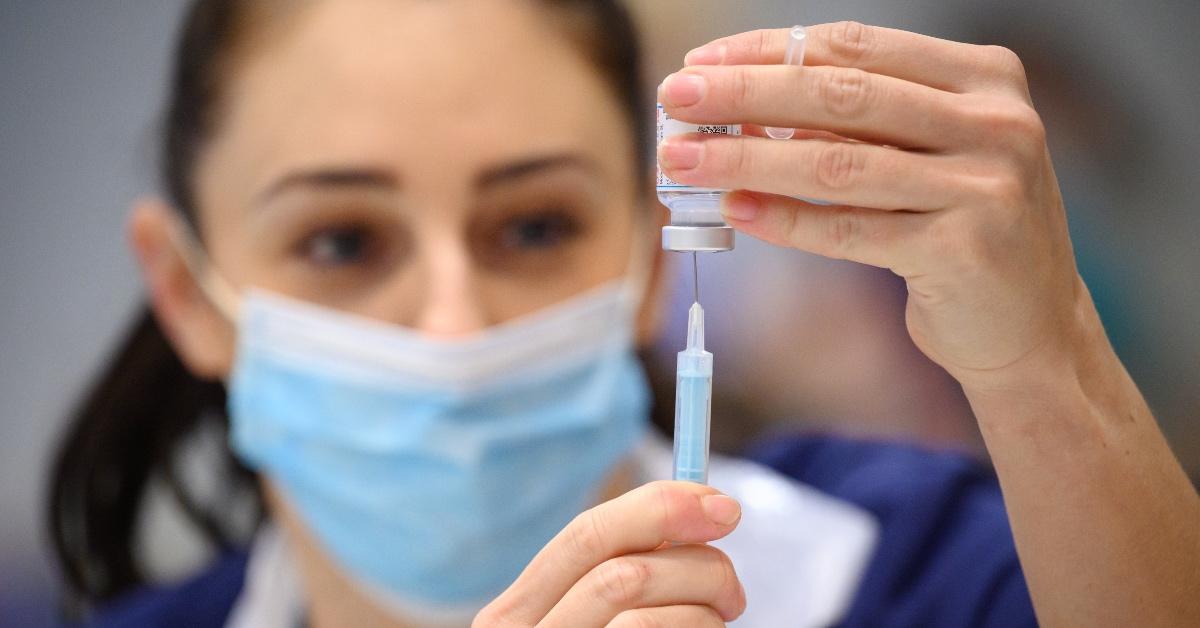Sinovac Vaccine Deemed Ineffective at Protecting Against Omicron
A recent study revealed that Sinovac's COVID-19 vaccine may not be as affective at protecting against the omicron variant of the COVID-19 virus.
Dec. 17 2021, Published 7:16 a.m. ET

When news broke on the development of the omicron variant of the COVID-19 virus, Pfizer CEO Albert Bourla didn’t appear to be too worried, as he believed the company’s COVID-19 vaccine to be effective at protecting against it. While research supports his theory—studies show the Pfizer vaccine stops 70 percent of hospitalizations—the same cannot be said regarding Sinovac’s vaccine.
How effective is the Sinovac vaccine in protecting against the COVID-19 virus, and is it being offered in the U.S.?
Concern is growing around Sinovac’s CoronaVac vaccine efficacy

On June 1, 2021, the World Health Organization (WHO) validated Sinovac’s CoronaVac vaccine for emergency use. Sinovac is a Beijing-based pharmaceutical company that's responsible for developing the vaccine and issuing it to various countries, many of which are located in Asia.
Malaysia and Thailand were two countries to use Sinovac’s COVID-19 vaccine, though Reuters reported in July 2021 that they would be phasing it out. Anyone in Thailand who was due for a second dose of Sinovac would instead receive AstraZeneca, reports BBC News.
These drastic changes not only raised questions as to “whether China’s vaccine [could] be trusted,” but also about how effective they are at protecting against the COVID-19 virus. On Dec. 16, 2021, it appears the efficacy of Sinovac’s vaccine is being revealed.
Research shows two doses of Sinovac’s COVID-19 vaccine aren't effective at protecting against the omicron variant of the COVID-19 virus
Results from a recent study suggest that Sinovac’s vaccine has low efficacy in protecting against the omicron variant. Scientists from the University of Hong Kong analyzed blood samples from 25 people who had received Sinovac’s CoronaVac vaccine, and found that “none of the CoronaVac recipients had detectable neutralizing antibody titer against either omicron isolates.”
The study focused on two strains of the omicron variant, HKU691 and HKU344-R346K. In their report, researchers also stated that the data suggests “that the omicron variant may be associated with lower COVID-19 vaccine effectiveness.”
It’s important to point out that “the studies are preliminary, and antibody levels do not give a complete picture of a person’s immune response,” according to The New York Times. This means that it’s still unknown “whether the Sinovac vaccine can fend off severe disease or death from omicron.”
After the results from the study were made public, Sinovac released a statement saying that “while two doses of its vaccine were much less effective against omicron, three doses might prevent infection from the variant.”
Does the omicron variant spread quicker than other strains of the COVID-19 virus?
The omicron variant was first identified in South Africa and has since spread at a rapid rate. The Centers for Disease Control and Infection (CDC) has reported that the omicron variant has been detected in the U.S., and the agency and its public health partners “are closely monitoring the emergence of this variant of concern.”
While researchers and health experts are still studying the omicron variant to better understand how it behaves, the CDC says it “may spread more easily than other variants, including the Delta [variant of the COVID-19 virus].”
Is Sinovac’s CoronaVac vaccine being offered in the U.S.?
Sinovac, along with all other makers of Chinese COVID-19 vaccines, has not received authorization to issue their vaccines in the U.S. As of July 28, 2021, the countries that were using the Sinovac vaccine were:
- Columbia.
- Ecuador.
- Brazil.
- Oman.
- Ukraine.
- China.
- Thailand.
- Malaysia.
